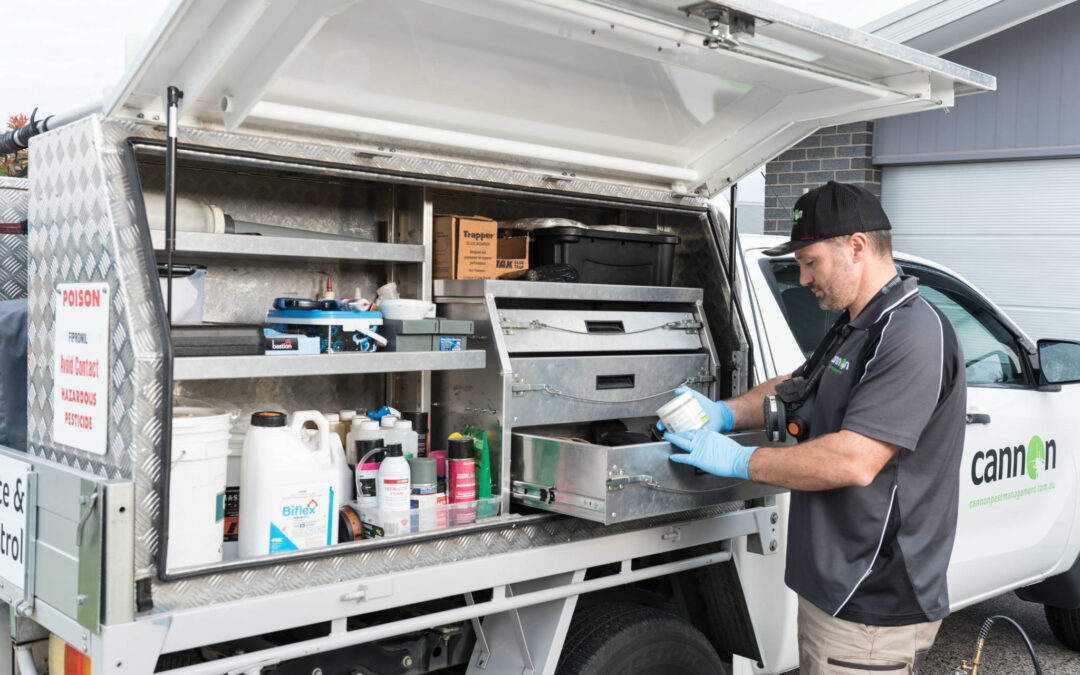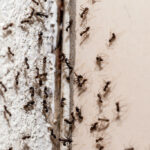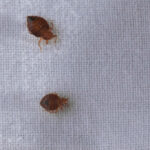If you own a home or investment property, you may have thought about the impact of termites making a meal of your biggest assets.
Subterranean termites cause more economic damage to building structures in Australia than all-natural disasters combined. You may know that termites favourite food is wood, which also makes up the majority of structural support in our homes. Once termites have invaded your home, they have an endless smorgasbord to dine on which can eat you out of your house. Termite treatments are a long-term solution to crashing a termites dinner party. We often get asked, (1) what termite treatment options are best and (2) how long does a termite treatment last? If you’d like to learn more, please read below.
Termite Treatment Options (Chemical)
Termite treatments using chemicals is called chemical soil treatment. As the name suggests, this method involves treating the soil with a chemical called a termiticide. The treated soil is referred to as a treatment zone or barrier. Termites are controlled when they move through their subterranean tunnels into the treated soil. Termite treatments are effective when your home is under attack from termites or when you would like to be proactive and prevent termites attacking your home.
Termiticides – How they work
There are many different brands of termiticides available for use in Victoria, but they fall into only two groups.
Non-Repellent Termiticides
Most chemical soil treatments today are non-repellent, they control termites in two ways. They kill some termites when they forage through the treated soil and the surviving termites become carriers of the chemical and transfer it back through their tunnels into the termite nest. The benefit of non-repellent treatments is that they keep killing termites and reducing the volume of termites foraging around your home. They may even kill a termite nest through the transfer effect of the chemical.
Repellent Termiticides
There is no transfer effect with repellent termiticides, they simply kill termites that forage into the treated soil. This type of treatment is commonly called a termite barrier as the treated soil acts to block termites tunnelling through treatment. This works because when termites sense the chemical in the soil, they will communicate the danger to the colony and the underground tunnels will be shutdown. The termite colony will continue to forage in untreated soil around your home.
Termite Treatments – How they are applied
Chemical soil treatments are very effective termite control method when applied by an experienced termite technician. A bona fide expert will ensure a safe pest control process by using high-quality termiticides, not generic brands and have the skills and required tools and equipment to install the termite treatment.
If your home is built on a concrete floor, the termite treatment is applied into the soil beside the external building walls around the whole perimeter of your home. If your home is built on a suspended floor with stumps supporting the building, then the termite treatment is applied to the external perimeter as mentioned above and also under the building around the perimeter and at the base of every stump.
Termite Treatment – How long they last
The life of a termite treatment varies, it will depend on a few different things, here are four factors that will impact how long a termite treatment lasts.
1. The application of the termite treatment
The skill and knowledge of the termite technician applying your treatment are very important. Termite treatments are very labour intensive and lazy application can result in an ineffective treatment. This may include gaps in the treated soil where the chemical has not been applied correctly allowing termites to bypass the treatment. This will lead you to have a false sense of security as you believe your home has sufficient termite protection. While your guard is down, termites will continue their destructive path through your home.
2. Choosing the best product for your termite protection
There are dozens of termiticides available for termite protection in Melbourne. The product you choose will have a direct impact on the effectiveness and life of your termite treatment. The active ingredient of the product such as Fipronil, Imidacloprid and Bifenthrin will have different life expectancies when applied in accordance with the product label. Generic copies of major research and development brands can be used to reduce the cost of the initial treatment but may result in a big reduction in quality and life expectancy of your termite treatment. The average life of termite treatment can range from as little as 3 years and up to 10 years.
3. Events that impact on the life of a termite treatment
Here are some other factors that may directly impact on the life of your termite treatment:
- Removal or significant disturbance of the treated soil. This can result from building alterations, landscaping, erosion or even your family dog digging beside the building walls.
- Water leaks or a burst pipe flooding the treated soil.
- Objects being placed over the treated soil that termites can use to bridge the treatment and access your home.
If you have concerns about your termite treatment being disturbed or impacted in any way you should contact your termite technician to discuss this further.
4. When your current termite treatment was applied
Prior to the mid-1990s, the termiticides used for termite protection of buildings were very toxic to not only termites but also humans. The life expectancy of these products is often misunderstood with the common perception that they last for 30-40 years or even forever. Whilst it’s true that the expected life of these old-school termiticides was much greater than the modern termiticides used today, the life span was exaggerated. When you consider what we have mentioned above with events that impact on the effectiveness of your termite treatment, there’s a great chance that one of these events have occurred if the treatment has not been renewed for decades.
How to maximise the life of a termite treatment
Your termite treatment has to be applied correctly using high-quality products by an experienced pest control professional. Termite treatments are not a DIY job, you’re preventing termites from attacking your home and possibly causing extensive damage leading to far greater costs than the cost of termite treatment.
A professional termite technician is someone that is;
- licensed in Victoria for termite control.
- experienced, look for several years of experience
- accredited by the manufacturer of termiticide product
- insured with adequate public liability and professional indemnity cover
- has extensive application equipment, and
- presents in a professional and polite manner
As you can see there’s a lot to take into consideration with termite treatment options. You can rely on a trusted termite professional to provide the best advice and guide you through the process. The process should begin with a termite inspection of your home and then a termite management plan can be tailored to best protect your home from termite attack. For peace of mind and a long-term solution in termite control, contact the team at Cannon Pest Management today on 1300 025 948.







